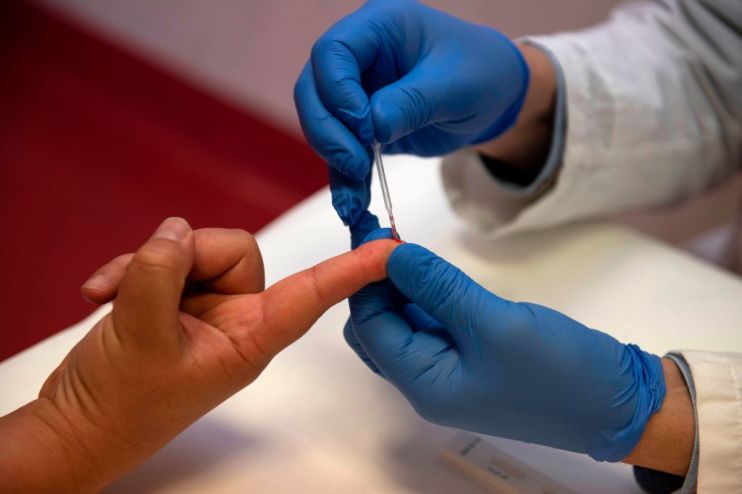Coronavirus: What is the antibody test and how does it work?

The prime minister’s official spokesperson today hailed an “important breakthrough” after the UK approved a Covid-19 antibody test.
The test has been tipped as a potential tool for helping the UK to ease the coronavirus lockdown.
But what is an antibody test, how does it work and why do we need one?
What is an antibody test?
Antibody tests — also known as serology tests — are used to determine whether someone has been infected with Covid-19.
By detecting antibodies used to fight coronavirus in the blood, it can show that a person has had the virus at some point in the past.
This may give some indication about immunity, although it is not yet clear whether the presence of antibodies means the person is permanently immune.
Until today, officials had not yet identified a test that was considered reliable.
However, an antibody test made by Swiss manufacturer Roche has now been granted regulatory approval.
Health minister Ed Argar this morning said the government will be ordering the first batch “as quickly as we can”.
How does the antibody test work?
The antibody test uses a small device that takes a blood sample through a finger prick. This needs to be done at least 14 days after symptoms develop and must be carried out by a healthcare professional.
The sample is then sent to be analysed on Roche’s cobas e analysers, which are widely used in NHS laboratories.
The automated tests can be carried out in 18 minutes and the machines can carry out up to 300 tests per hour.
Public Health England (PHE) has carried out testing on Roche’s antibody test at its Porton Down facility.
These showed the test are 100 per cent accurate when someone has been infected. If someone has not caught the virus, the test gives the correct result 99.8 per cent of the time.
Why do we need these tests?
Prime Minister Boris Johnson has described the antibody test as a “game changer” and has been slated as a key tool for helping Britain get back to work.
Scientists believe people with coronavirus antibodies may develop immunity to Covid-19, allowing them to return to work safely. However, this is yet to be confirmed.
As well as being highly accurate, the antibody test provides more information than the current swab test, which only shows whether someone has the virus, not if they have previously had it and recovered.
Results from the antibody test are also returned much more quickly.
This means the government can use the test to determine what proportion of the population has been infected and track the spread of the virus across the country.
As well as helping officials to establish the prevalence of the disease, it could also allow lockdown measures to be determined locally.
In theory, the antibody test could also open the door to so-called immunity passports that would allow people who have already been infected to return to normal life.
However, scientists do not yet know enough about coronavirus immunity for this to be a viable option.
Can anyone get a test?
The Roche antibody test is not a rapid finger-prick test that can be used at home.
In March the government ordered 3.5m of these tests from manufacturers in China, but an Oxford University trial found they were insufficiently accurate.
Instead, the antibody test must be carried out by healthcare professionals and analysed in laboratories.
The government has not yet bought any tests — it is still in discussions with Roche about acquiring them.
Health minister Ed Argar today said the tests would first be distributed to frontline workers in the NHS and social care before extending testing more widely.